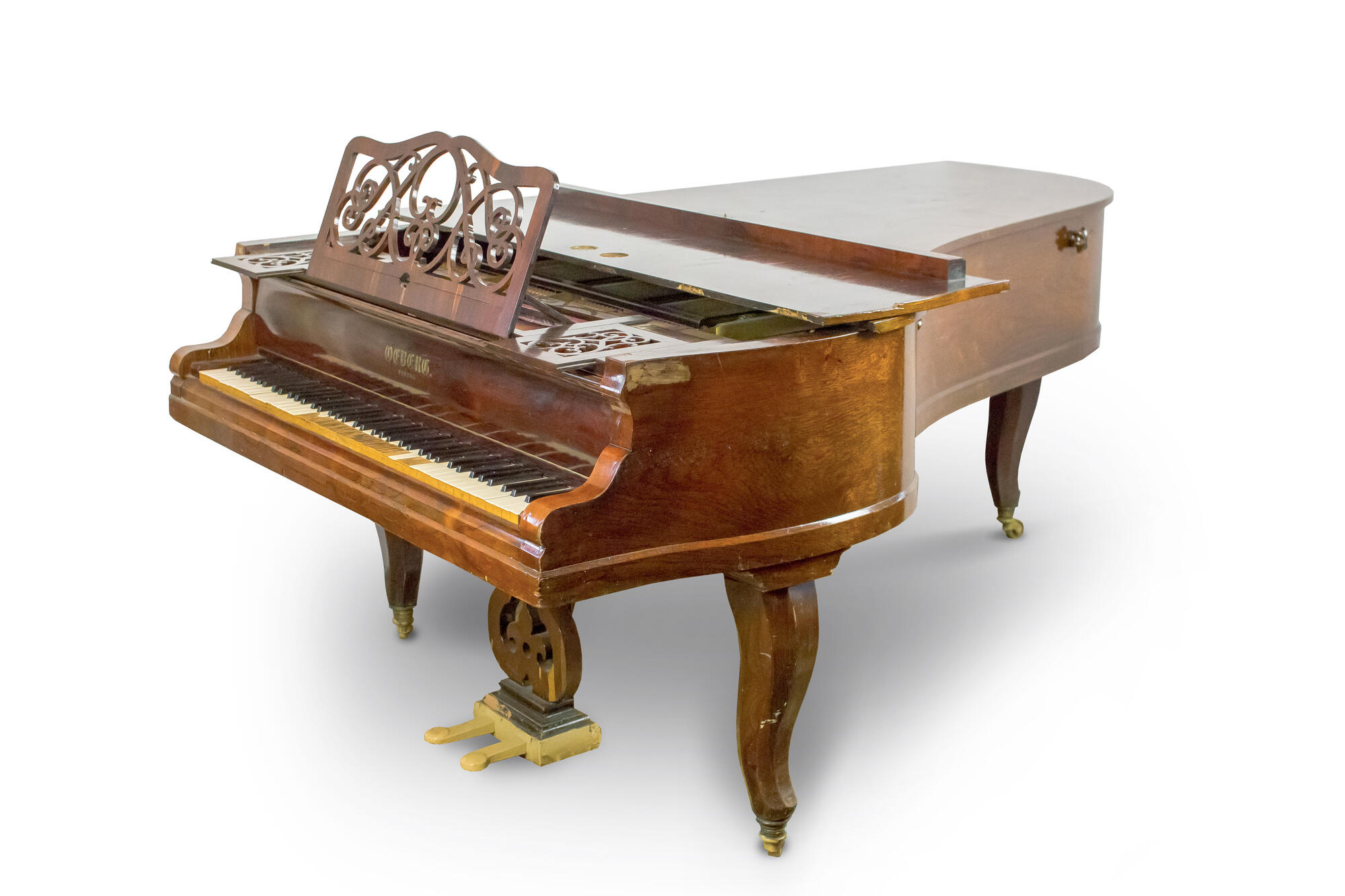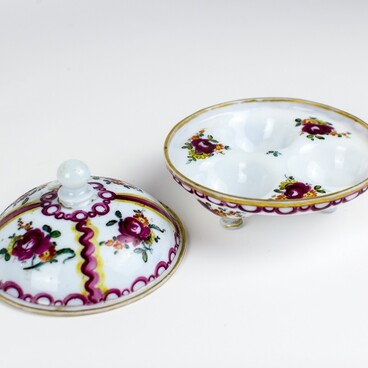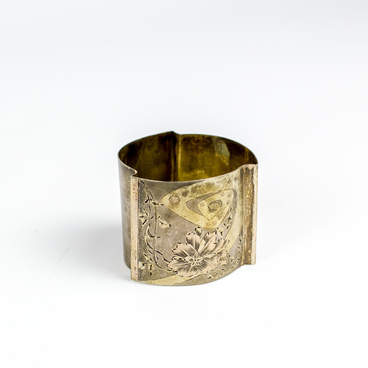This grand piano was purchased in 1926 at an auction in the city of Yelabuga by the residents of Tetyushi, the Khodyashev family, in 1926, and brought to the city. Later, they sold it to the Belyakovs' family, who, in turn, in 1973, transferred the piano to the Tetyushi Museum of Local Lore in 1973.
The grand piano stands on three carved figured legs. Two medals were attached to the inside of the lid. One of them has been preserved — the award “For Hardworking and Art to Alexander Eberg. 1861”. The second one was lost, but in the recess for the medal you can distinguish the silhouette of Emperor Alexander II.
The carved music stand folds under the piano lid. The pedals are mounted on a carved vase-shaped leg. The instrument has a sign of the Alexander Eberg’s company.
The piano factory “Alexander Eberg” was founded in 1852 in Moscow and worked until the beginning of the 20th century. The company was the official manufacturer of the Court of His Imperial Majesty and supplied tools for members of the royal family. In 1861, Eberg received the Imperial Medal “For Hardworking and Art”. Subsequently, the company began to stamp copies of the medal and placed them on the lid or keyboard flap of all its grand pianos.
The company’s instruments were very durable and had a good sound. The Eberg factory was the first in Russia to organize the sale of grand pianos with extended installment payments, and organized the rental of instruments, thanks to which the company’s products became very popular.
The first factories for the production of grand pianos appeared in Russia only at the beginning of the19th century. Before that, music lovers either purchased individual works by foreign masters who lived and worked in Russia, or they themselves went abroad to buy instruments.
The first Russian piano factory of the Diederichs brothers, who came from the German Duchy of Brunswick, opened in St. Petersburg in 1810. The company took part in the First All-Russian Manufactory Exhibition in St. Petersburg in the spring of 1829. The jury appreciated the “good and solid work” and noted that the company’s instruments cost more than the price assigned to them: the Diederichs pianos cost 3-8 times less than foreign instruments.
The grand piano stands on three carved figured legs. Two medals were attached to the inside of the lid. One of them has been preserved — the award “For Hardworking and Art to Alexander Eberg. 1861”. The second one was lost, but in the recess for the medal you can distinguish the silhouette of Emperor Alexander II.
The carved music stand folds under the piano lid. The pedals are mounted on a carved vase-shaped leg. The instrument has a sign of the Alexander Eberg’s company.
The piano factory “Alexander Eberg” was founded in 1852 in Moscow and worked until the beginning of the 20th century. The company was the official manufacturer of the Court of His Imperial Majesty and supplied tools for members of the royal family. In 1861, Eberg received the Imperial Medal “For Hardworking and Art”. Subsequently, the company began to stamp copies of the medal and placed them on the lid or keyboard flap of all its grand pianos.
The company’s instruments were very durable and had a good sound. The Eberg factory was the first in Russia to organize the sale of grand pianos with extended installment payments, and organized the rental of instruments, thanks to which the company’s products became very popular.
The first factories for the production of grand pianos appeared in Russia only at the beginning of the19th century. Before that, music lovers either purchased individual works by foreign masters who lived and worked in Russia, or they themselves went abroad to buy instruments.
The first Russian piano factory of the Diederichs brothers, who came from the German Duchy of Brunswick, opened in St. Petersburg in 1810. The company took part in the First All-Russian Manufactory Exhibition in St. Petersburg in the spring of 1829. The jury appreciated the “good and solid work” and noted that the company’s instruments cost more than the price assigned to them: the Diederichs pianos cost 3-8 times less than foreign instruments.



